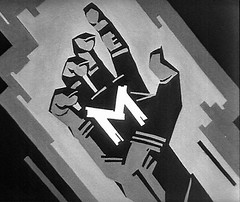"Planning" is a very common word, and it's used in basically all fields. Which is why one of the things i find extremely interesting is to look at other fields and try to figure out certain particularities of their form of planning, which might help me understand my role better, and make more out of it.
I am currently reading an absolutely fascinating book called "Judgement and planning in chess", written by dr. Max Euwe. The book is a wonderful introduction in the complexity of the phenomenon called chess, cause chess is obviously much more than a simple strategy game. With a number of legal positions estimated somewhere between 1043 and 1050, and with a game-tree complexity of approximately 10123, chess offers an enourmous amount of possibilities to seriously challenge one's mind. And the more you practise, the more absorbed you get.
The following extract is the introduction of the book, which i particularly liked for its description of "planning" in chees: "Often when a player has a fair understading of the principles of chess and can make quite pretty combinations, two or three moves deep and occasionally, in simple positions, even four, he suddenly notices, as he meets stronger players, that his development seems to have come at a standstill. He loses games without being able to asses the cause. He works out a series of moves as far ahead as he possibly can and then notices that his opponent has planned it and though it in an entirely diferent direction; in short, he loses the grip on the game which he had possessed at a previous stage. He learns opening variations by heart without accurately knowing why just these moves are played, with the result that he finds himself in totally unfamilia positions - positions which may well be favourable though he has neither any idea why they are so nor knowledge as to how to turn them to his advantage.
A new element enters the chess battle at this stage - namely "positional understanding". It does not grow of itself but must be developed by the process of drawing conclusions in practical play.It represents the increasing ability to form a judgement on any position whatever without going into details of exact calculation.
Just like the doctor, who first has to gain a clear picture of the diseased condition in order afterwards to plan the process of the cure - diagnosis, treatment - the chess player must malke a plan on the basis of such characteritics as he has found in the examination of a given position. Steinitz' axiom that the plan to me made must be in keeping with the characteristics of the position appears self-evident to us, for it is the logical outcome of our present method of taking effective action, though sixty years ago Steinitz' stipulation created a very revolution in chess thought.
Judging and planning. Coming back to our remarks on opening variations, we find that the theoretical work judges for us, generally by means of such symbols as + - =, etc. But this judgement in itself is not enough: we have to know not only which of the two players stands better, but also why. And with this the first step is taken, on the basis of Steinitz' axiom, towards the making of a plan. The forming of a judgement, and the making of a plan, are the topics to be dealt with in this book. They form for the beginner, the bridge, that takes him across to those higher regions where not impulse but reason determines the choice of a move without, however, minimising the significance of what we call "intuition"."


No comments:
Post a Comment